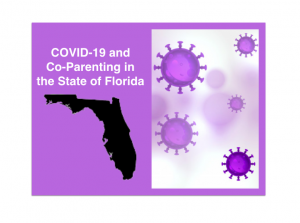Written by: Lenorae Atter, Attorney at Law

First, the Florida legislature changed child custody to “primary timesharing parent” in October, 2008. However, since most of us are familiar with child custody and custody issues, this article will still address the issue as the historic term, “custody.”
As a Jacksonville Florida family law and divorce attorney, dealing with paternity cases and divorces with children, custody issues often arise and the Social Evaluation is an important factor in helping the parents better understand the issues facing the children, and the evaluation assists the judge in having a better understanding and comprehension of what is in the best interest of the children. In Jacksonville and throughout Florida, the social investigation is a component of the case that may be used in its entirety by the judge or may give the judge a basis for a particular ruling. In addition, the evaluation can provide the parties with a stepping-stone or format by which to reach an agreement regarding visitation issues.
The social investigation is conducted by a professional, usually someone with a psychology and law background, and the investigator actually interviews the parents, speaks with witnesses, talks to the kids, look at school records, etc. Once the reviews and statements are completed, the evaluator writes a comprehensive report to demonstrate the findings for each parent, child, and the overall assessment of a parenting plan and recommendations for the court regarding any other matters that should be addressed (i.e. whether counseling is recommended, communication issues, etc.).
So how do you present well in the social investigation? Basically, parties are often concerned that they need to present themselves in a certain light to impress the investigator. However, most of the individuals handing these matters can tell when a party is putting on a show. The idea is not to be fake or phony, but to present your concerns for the children, explain your relationship with the children, and truly identify your wants and needs and the children’s wants and needs before the interview. Being genuine with the investigator is beneficial because it allows the investigator to truly determine any family issues that may need to be addressed, the impact the divorce/separation is actually having on the children and the like. The reason for the investigation is not to berate the parents, but to simply identify what may be in the best interest of the children in the present and in the future.
Extend a mental olive branch to the other party. During your interview with the evaluator, do not destroy the other parent with disparaging remarks. Describe the parts of parenting that the other parent does well and be honest in your comments about the children’s relationship with their other parent. Then share the things that do concern you about the other party, or about the separation of the children. You do not have to make it sound like everyone is great, you’re getting divorced there were issues in the home, so being real about the situation can be helpful in reaching the right conclusion for your case.
Continue reading
 The times we are living in are unprecedented. As “non-essential” businesses are closing and schools seem to be either closing or “going online,” the endless spring break has created a situation where many co-parents lack the necessary guidance that they need to proceed these dark waters in effectively parenting. Court orders are drafted to provide reasonable guidance for circumstances, but the current status of a national health emergency is not a provision contained in parenting plans. A recent study of Americans found that the greatest current fear is that of “the unknown,” and when you do not know how to move through this situation regarding your child, that fear of the unknown is amplified.
The times we are living in are unprecedented. As “non-essential” businesses are closing and schools seem to be either closing or “going online,” the endless spring break has created a situation where many co-parents lack the necessary guidance that they need to proceed these dark waters in effectively parenting. Court orders are drafted to provide reasonable guidance for circumstances, but the current status of a national health emergency is not a provision contained in parenting plans. A recent study of Americans found that the greatest current fear is that of “the unknown,” and when you do not know how to move through this situation regarding your child, that fear of the unknown is amplified. Jacksonville Divorce Lawyer Blog
Jacksonville Divorce Lawyer Blog



 Back to school is an exciting and hectic time for families. New school, new classroom, new teacher, but what if the same old situation exists with your co-parent where communication has hurdles, challenges, and yes disputes? Some families seem to do it seamlessly, by splitting the supplies list, attending orientations together, and sharing in the excitement of a new beginning. Others have more difficulty.
Back to school is an exciting and hectic time for families. New school, new classroom, new teacher, but what if the same old situation exists with your co-parent where communication has hurdles, challenges, and yes disputes? Some families seem to do it seamlessly, by splitting the supplies list, attending orientations together, and sharing in the excitement of a new beginning. Others have more difficulty.
 In Florida, when the court enters an order regarding a
In Florida, when the court enters an order regarding a  Issues involving children typically arise in Florida divorce and
Issues involving children typically arise in Florida divorce and 
 Florida
Florida